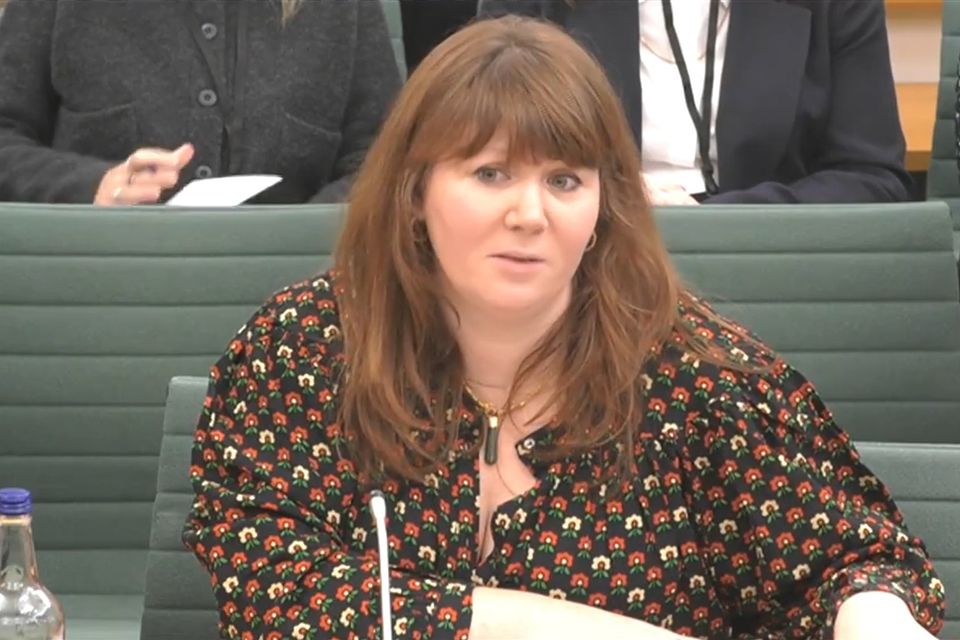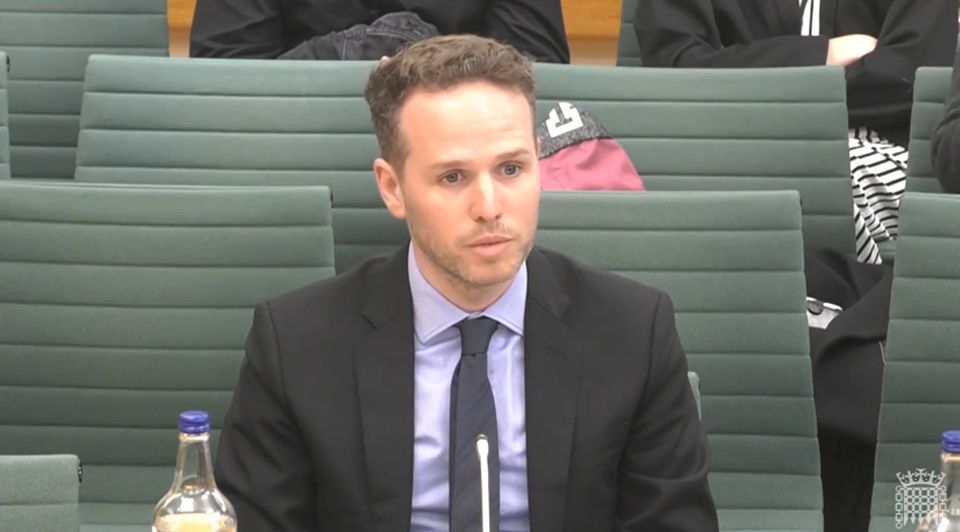
Director of BBC Film Eva Yates was giving evidence to the Culture, Media and Sport Committee (House of Commons/UK Parliament/PA)
By Charlotte McLaughlin,
PA Senior Entertainment Reporter
The director of BBC Film has raised concerns about the “battered” British film industry seeing an exodus of experienced filmmakers.
Eva Yates, head of the feature film-making arm of the BBC, appeared in front of a Wednesday session of the Culture, Media and Sport Committee’s inquiry into British film and high-end TV.
She said: “I think the tax credit could have a transformative effect, I think we’re sort of at the point where we are at risk of losing a huge number of really talented people from the industry.
“And I think there’s both an immediacy to that as a possible solution but there’s also an opportunity to bring some confidence back into an industry which has really been battered in the last few years between the strikes, the effects of Covid and massive changes to the structure of the marketplace.”
She also said that it was “frustrating to be training lots of new people, when there’s actually brilliant, experienced people who could be doing these jobs, but not choosing to stay in the industry”.
Ms Yates, whose company has had the recent releases romantic drama Rye Lane, biopic One Life, family drama Aftersun and Oscar-nominated Triangle Of Sadness, also told MPs that the “amount of resources” needed to make a film was increasing.
“I now go to film festivals and spend the whole time meeting other financiers so that I can try and bring those introductions into the British industry and to those independent producers,” she said.
We make about 15 films a year with that money, and we also make short films, but we do that always in partnership with other people - so we don't have the financial ability to solely finance anything that we doDirector of BBC Film Eva Yates
“I don’t get to watch films anymore. It’s completely different.”
Ms Yates also said the “very modest budget” for BBC Film at £11 million had “not increased” in a decade, amid rising inflation during that period.
“We make about 15 films a year with that money, and we also make short films, but we do that always in partnership with other people – so we don’t have the financial ability to solely finance anything that we do,” she added.
Film4 director Ollie Madden has said that his company, involved in Oscar-nominated films Poor Things and The Zone Of Interest, was making “fewer” movies than the studio would like.
It has become harder, finding absolutely private money, commercial money to make first-time features because they are very riskyFilm4 director Ollie Madden
“We make a minimum of four every year, but we would like to make more,” he added.
“And it has become harder, finding absolutely private money, commercial money to make first-time features because they are very risky.”
He also said: “Producers and production companies being able to earn a fair fee for their work and not having to defer their fees, and allowing them to build much more sustainable businesses, because too often you see producers having to defer (fees) so much that feels unsustainable, and they struggle to make their next film, or even stay in the industry, because it’s too hard to build a business.”
Mr Madden also said that if there were changes to tax relief then producers could get more revenue through rights distribution.

Film4 director Ollie Madden said his company was making ‘fewer’ movies than the studio would like (House of Commons/UK Parliament/PA)
“Independent film can be commercially successful by holding back the rights of films, particularly in North America, which is one of the biggest markets,” he added.
Ms Yates agreed there was an “ongoing issue around producers deferring their fees”, causing them to “reach the crisis point where they can’t make the cost of their film meet the budget that they managed to raise”.
“We have had to substantially raise our investment in a number of films over the last few years in order to get them to the point where they’ve been makable,” she added.
“But it’s quite difficult for us to continue to do that, without starting to lose the overall amount of films that we’re able to make in any given year.

The cast of Triangle Of Sadness (Doug Peters/PA)
Rebecca O’Brien, a producer at Sixteen Films, who made the Irish civil war film The Wind That Shakes The Barley, starring Cillian Murphy, and Bafta-nominated The Old Oak, also warned that without fiscal support the industry would “die”.
She also said there was “market failure” because of streaming giants, higher-end TV and Hollywood coming in and taking “a lot of our investors away”.
“I’m chatting up a Turkish TV station at the moment,” Ms O’Brien said.
“I’m not desperate, I’m very, very happy to work with Turks, but it’s like, really, am I doing that to close the funding on my film at the moment.”
No comments:
Post a Comment